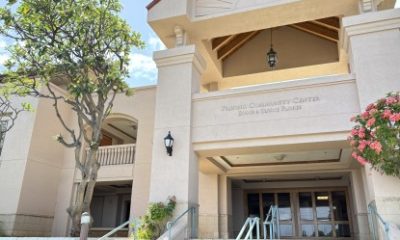Health
Bone marrow transplant can halt progression in patients with aggressive MS: study
TORONTO—More than 10 years ago, Jenn Fraser looked into her future and saw an image of herself in a wheelchair, the likely result of rapidly progressing multiple sclerosis that was swiftly stealing her ability to walk, blurring her vision and wracking parts of her body with numbness and pain.
Now 53, the Vancouver mother of three is back to hiking, goes kayaking and has joined a dragon-boat team, thanks to an experimental bone marrow transplant that has halted the progression of her MS and even reversed some of her symptoms.
“I am so much better, my mom calls me the miracle child, “ she said from Vancouver. “My cane is in my cupboard. I haven’t used it in maybe seven years.”
But Fraser knows—and the doctors who treated her strongly emphasize—that having the immune system wiped out with chemotherapy and replaced with stem cells taken earlier from the bone marrow isn’t a panacea for anyone with MS, but a potential treatment for only a select group of patients with aggressive disease.
“The kind of patients that we’re looking at are probably young, early into their disease, with indications that they’re not able to be controlled by our current therapies,” said Ottawa Hospital neurologist Dr. Mark Freedman, who co-led a 15-year study of the procedure involving 24 MS patients.
“What we are dealing with is people who are actively having attacks and amassing disability from each of these attacks, such that they’re constantly getting worse even between attacks,” said Freedman, likening the disease progression to a runaway train.
“What we’re not looking for is someone who’s exhausted all known therapies before trying this. We’ve tried to identify a group that we consider to have aggressive forms of MS. And we think it’s quite rare, probably no more than five per cent of most clinics would have patients that would satisfy the criteria for the study that we did.”
That study, published Thursday in the Lancet, details how the two dozen patients had stem cells extracted from their blood, before being given high-dose chemotherapy to knock out their immune systems.
Once recovered, patients were injected with the stem cells, which rebuild the bone marrow, blood cells and immune system. The process is similar to that which leukemia patients go through with donor stem cells.
“It’s like starting over again, like a baby,” said co-lead investigator Dr. Harold Atkins, a stem cell transplant physician and scientist at the Ottawa Hospital.
While the new immune system needs to build up antibodies to protect against disease, the researchers suggest it offers a critical bonus over the old one—it appears to contain none of the cells that spark MS, which occurs when the immune system goes awry and begins destroying tissues in the brain, spinal cord and optic nerves.
“We’re hoping that we not only remove the memory of prior infections, but the abnormal memory that’s causing the immune system to attack the brain and cause MS,” Freedman added.
Atkins said the bone-marrow transplants halted the progression of MS in 23 patients—one man died due to toxicity from the high-dose chemotherapy—and reversed some symptoms in about 40 per cent of participants.
Although the trial is not the first to explore the use of bone-marrow transplants for rapidly progressing MS, the Ottawa researchers believe it is the first to show complete and sustained suppression of all inflammatory activity in patients.
Dr. Anthony Traboulsee, medical director of the MS clinic at UBC Hospital in Vancouver, said the high success rate is likely due to the Ottawa researchers using a more rigorous course of chemotherapy to ensure patients’ existing immune systems were wiped out and no MS-causing cells remained.
“The exciting part of this for me is it shows MS is an extremely treatable, potentially curable disease by targeting the immune system,” said Traboulsee, who was not involved with the research.
The approach could possibly be used for other auto-immune diseases, such as lupus and rheumatoid arthritis, he said.
“For the right patient with really aggressive disease, failing standard therapies, it’s nice to know that this is a potential option.”
While Atkins called the results “very exciting,” he stressed the procedure is a daunting one to endure and recover from, and can have serious side-effects and risks, making it appropriate only for a small proportion of people with very active MS.
Some participants developed shingles after the bone marrow transplant; some others developed different auto-immune disorders, primarily thyroid conditions, which can be controlled with medications.
Still, many patients saw improvements in their ability to walk, their balance, vision and other deficits—to the point that some were able to resume driving or riding a bike.
Alex Normandin of Montreal, who was diagnosed with rapidly advancing MS at age 25 during his third year of medical school, was able to return to McGill University and finish his residency after his 2008 bone-marrow transplant. The 33-year-old is now practising full-time as a family physician. Two years ago, he married his longtime girlfriend.
“The fact that this treatment was able to stop the progression and give me some of my function back is really a complete life-changer,” Normandin said from Montreal.
“But I’m not completely MS-free,” he said, cautioning that the treatment has not cured his symptoms, nor is it appropriate for everyone with MS. “I still have quite a few problems with walking, with balance. I walk with a cane most of the time.
“I’m limited in terms of not being able to do everything that I’d like to do, but I’m still able to do enough that I consider myself lucky.”
For Fraser, there were some immediate benefits from the transplant, but it wasn’t until about two years afterward that she began to see major changes.
“It has been completely life-changing. I’m able to participate in my family and I wasn’t before. I’m able to do some of the things I used to love to do, like hiking and kayaking.”
Though she still suffers from debilitating fatigue, “it has allowed me to do so much more that had been kind of snatched away from me because of this disease.”






















